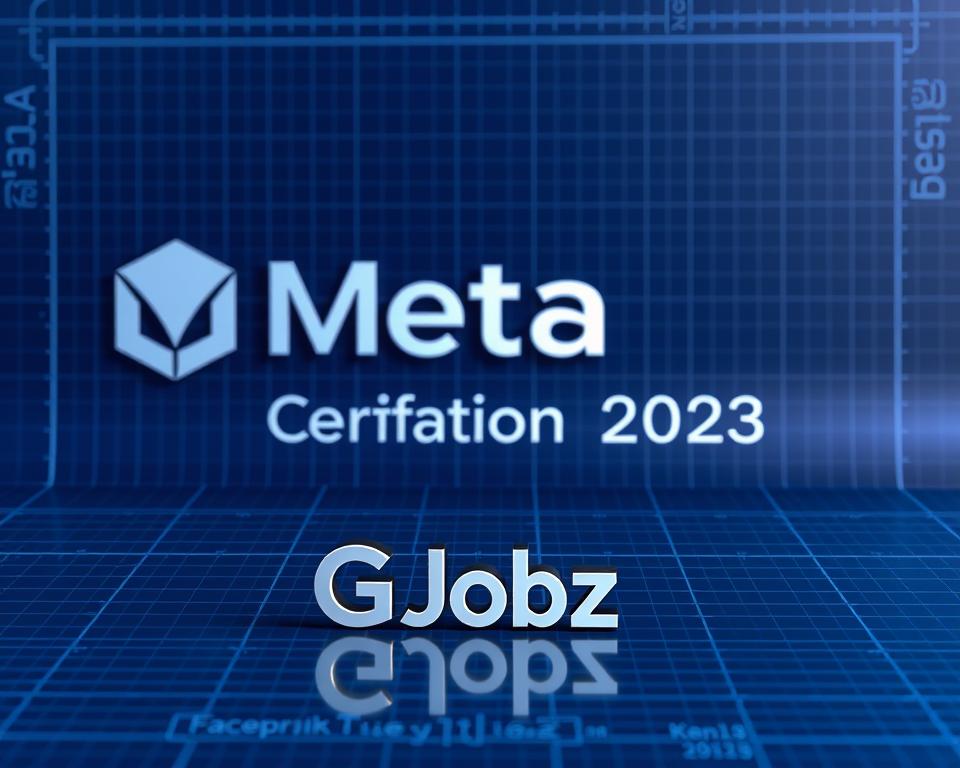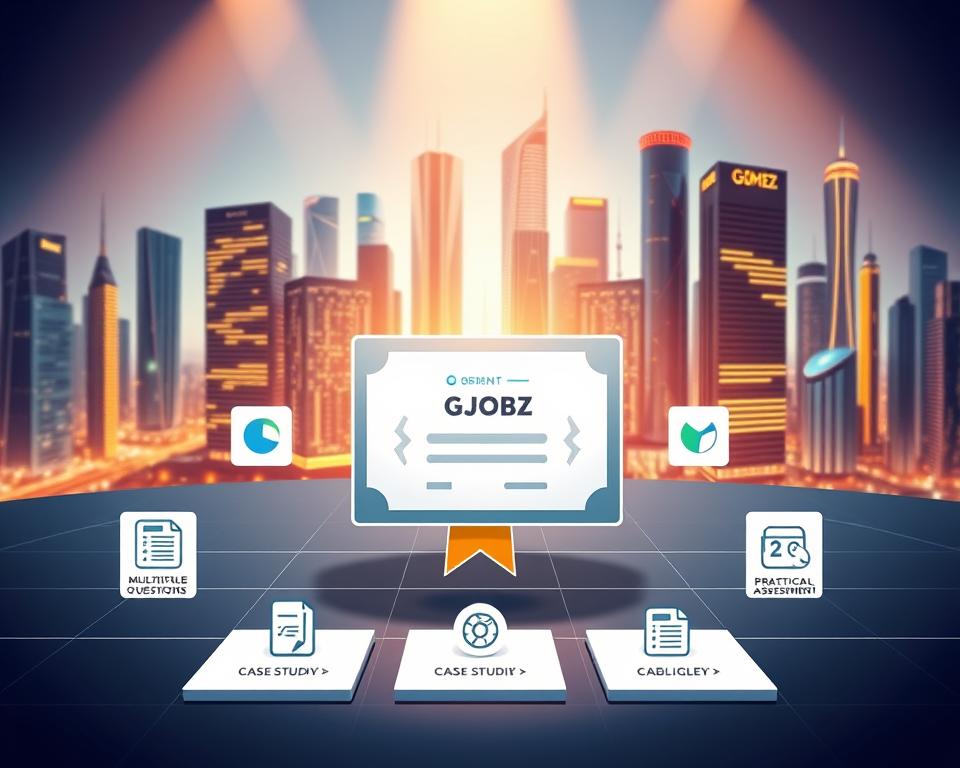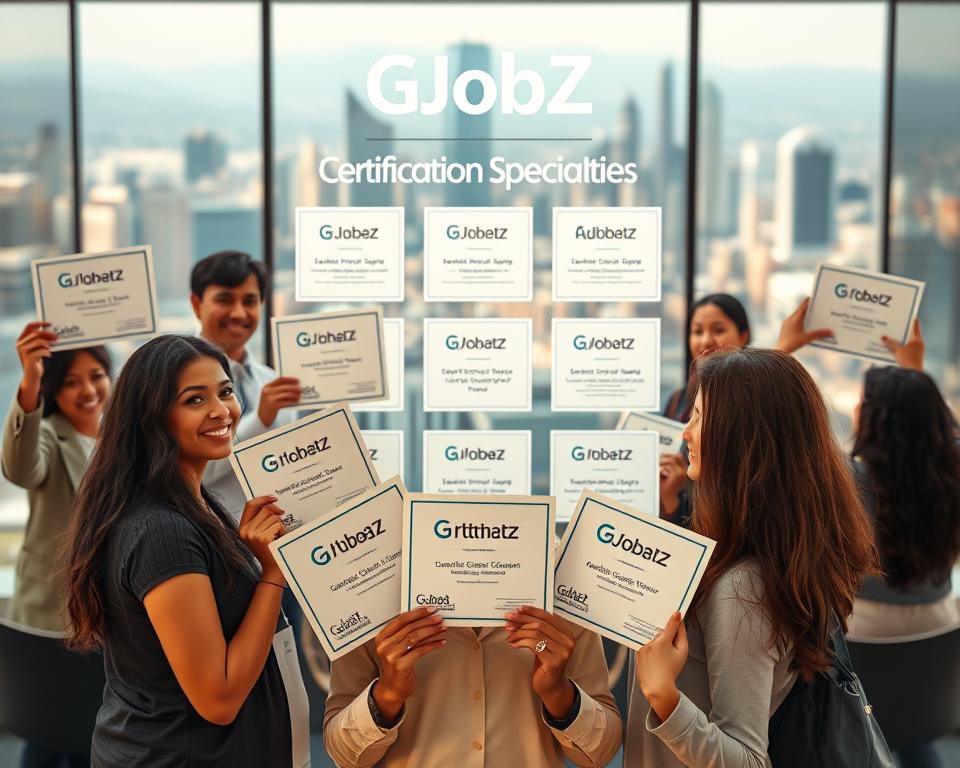
facebook blueprint certification 2025
Did you know that over 85% of certified professionals report improved job prospects within six months of earning their credentials? As digital advertising evolves, Meta’s certification program has become a critical benchmark for marketers aiming to prove their expertise. With seven specialized tracks now available, this credential validates skills across Instagram, Messenger, WhatsApp, and other platforms shaping modern marketing.
The 2025 updates introduce refined exam structures and real-world scenario testing, reflecting Meta’s latest algorithm changes and ad policies. While study materials remain free, the $99–$150 exam fee underscores the value of this industry-recognized achievement. Professionals who prepare thoroughly often find the tests manageable, but technical readiness—like a stable internet connection—is non-negotiable to avoid automatic disqualification.
This guide simplifies the certification journey, helping you align your goals with the right specialization. Whether you’re enhancing your resume or leading a team, understanding these updates ensures you stay ahead in a competitive field.
Key Takeaways
- Seven specialized tracks now cater to diverse advertising roles and skill levels
- Exams cost $99–$150, with free preparatory resources available
- Technical reliability during testing is critical to avoid instant failures
- Updated 2025 content reflects Meta’s newest platform features and policies
- Credentials enhance career mobility and client trust in marketing roles
Understanding Meta Blueprint Certification and Its Evolution
Professionals seeking to validate their advertising expertise now face a transformed landscape. Meta’s training initiative has grown from basic tutorials to a multi-platform accreditation system shaping industry standards. This evolution mirrors the company’s shift toward unified advertising solutions across its family of apps.
The Transformation of Educational Frameworks
Originally designed for a single social network, the program expanded as Meta integrated new platforms. Instagram’s visual storytelling and WhatsApp’s messaging capabilities demanded specialized strategies. The curriculum now addresses cross-platform campaign orchestration, reflecting modern marketing realities where 72% of campaigns span multiple channels.
Advertisers gain access to battle-tested techniques through 100+ self-paced modules. These range from fundamental audience segmentation to advanced AI-powered optimization. One agency director notes: “The practical workflows in these courses reduced our campaign setup time by 40%.”
Core Components Driving Professional Growth
Three pillars define the Meta Blueprint certification ecosystem. Interactive learning paths adapt to individual skill levels. Proctored exams test real-world problem-solving abilities. Organizational accreditation recognizes teams demonstrating platform mastery.
The program’s structure ensures relevance amid constant algorithm updates. Recent additions include augmented reality ad strategies and privacy-centric targeting methods. For marketing professionals, this continuous adaptation maintains the credential’s industry currency.
Over 300,000 certified experts globally now leverage these resources. Their success stories confirm the program’s role in bridging theoretical knowledge and measurable business outcomes. As digital landscapes evolve, Meta’s educational framework remains pivotal for career advancement.
Overview of Facebook Blueprint Certification 2025
Navigating professional credentials requires understanding their structure and long-term value. The updated program offers a balanced mix of affordability and rigor, designed to keep pace with digital marketing’s rapid changes.

Exam Structure and Cost Breakdown
Assessment fees range from $99 to $150 per specialization, with testing durations spanning 90-105 minutes. The 75-question format combines quick recall items (45 seconds each) with complex scenario analyses requiring 2-3 minutes of critical thinking.
Recent updates emphasize practical application. One module focuses on privacy-compliant targeting strategies, reflecting 2023’s iOS updates. Advertising professionals must demonstrate campaign optimization skills across Meta’s ecosystem, including newer platforms like Threads.
Certification Validity and Renewal Process
Credentials remain active for 12-24 months, depending on specialization. Renewal involves retaking the current exam version, ensuring familiarity with platform changes. Immediate preliminary results help candidates gauge performance gaps, while official credentials appear in accounts within 72 hours.
A marketing manager shares: “The renewal process forced me to update my knowledge of conversion API best practices – skills I immediately applied to client projects.” This cyclical validation maintains the program’s relevance in fast-changing digital landscapes.
Exploring Certification Types and Specialties
Selecting the right credential requires matching your career stage to Meta’s tiered learning system. Seven distinct tracks now address evolving industry demands, from campaign execution to strategic leadership roles.

Entry-Level and Advanced Options
Newcomers start with the Digital Marketing Associate certification. This track covers analytics fundamentals and campaign setup basics. Modules emphasize platform navigation and performance tracking.
Seasoned professionals target advanced credentials like the Marketing Science Professional track. It demands expertise in data modeling and multi-touch attribution. One analyst notes: “The exam’s optimization scenarios mirror challenges I face daily in client work.”
Specialized Tracks: Media, Marketing, and Creative
Media planners master cross-platform budgeting through the Media Planning Professional certification. Buyers focus on bid strategies and real-time optimizations in the tactical Media Buying track.
Creative specialists learn visual storytelling techniques validated by performance data. The Creative Strategy Professional exam tests ad variations and audience resonance principles.
| Certification | Level | Focus Area | Key Skills |
|---|---|---|---|
| Digital Marketing Associate | Entry | Campaign Setup | Analytics, Platform Basics |
| Marketing Science Professional | Advanced | Data Analysis | Attribution Modeling |
| Creative Strategy Professional | Advanced | Content Development | Visual Storytelling |
| Media Buying Professional | Specialized | Ad Execution | Bid Strategies |
Niche roles benefit from certifications like Community Manager or Business Marketing Strategy. These address engagement tactics and funnel optimization for specific business contexts.
Preparing and Studying for Your Certification Exam
Mastering exam preparation requires blending structured learning with practical application. Candidates benefit most when combining Meta’s educational assets with real platform experience.

Strategic Use of Training Materials
Meta’s training library offers 15-30 minute modules covering targeting, budgeting, and campaign analysis. These free resources include video guides and interactive quizzes that mirror actual exam scenarios. Self-paced courses allow professionals to revisit complex topics like A/B testing methodologies without time pressure.
Paid options provide deeper dives through case studies and mentorship programs. One marketing strategist notes: “The creative format modules transformed how we design ads for different audience segments.”
Building Competence Through Repetition
Practice tests reveal patterns in question phrasing and time management needs. Scoring 100% on these 30-question drills helps identify lingering knowledge gaps. Hands-on practice in Ads Manager reinforces theoretical concepts through campaign creation and metric analysis.
Many successful candidates allocate 20% of study time to platform experimentation. This approach builds muscle memory for tasks like conversion tracking setup and audience list creation.
“Recreating actual client scenarios in test campaigns helped me internalize optimization strategies faster than passive studying.”
Exam Logistics and Technical Guidelines
Technical precision meets strategic preparation in Meta’s credentialing process. Strict protocols govern testing environments to maintain assessment integrity while accommodating remote participation.
Optimizing Your Testing Space
Create a sterile workspace with blank walls and empty surfaces. Only your computer, monitor, and input devices may remain visible. Proctors conduct thorough room scans before exams begin, rejecting any space with potential distractions.
Lighting must eliminate shadows while avoiding glare on screens. Position webcams to show your face and workspace clearly throughout the 90-minute session. Many candidates use temporary setups in spare rooms to meet these standards.
Technical Safeguards and Connectivity
A wired internet connection proves most reliable for high-stakes testing. Run speed tests beforehand, aiming for 25+ Mbps download speeds. Install required proctoring software 48 hours early to troubleshoot conflicts with firewalls or antivirus programs.
Close all background applications before launching the exam interface. System alerts or pop-ups during testing could trigger security flags. Keep backup devices charged nearby in case of hardware failures.
Remember: Connection drops automatically end sessions, though free rescheduling eases technical mishaps. Successful candidates often test their setups through mock exams days in advance.